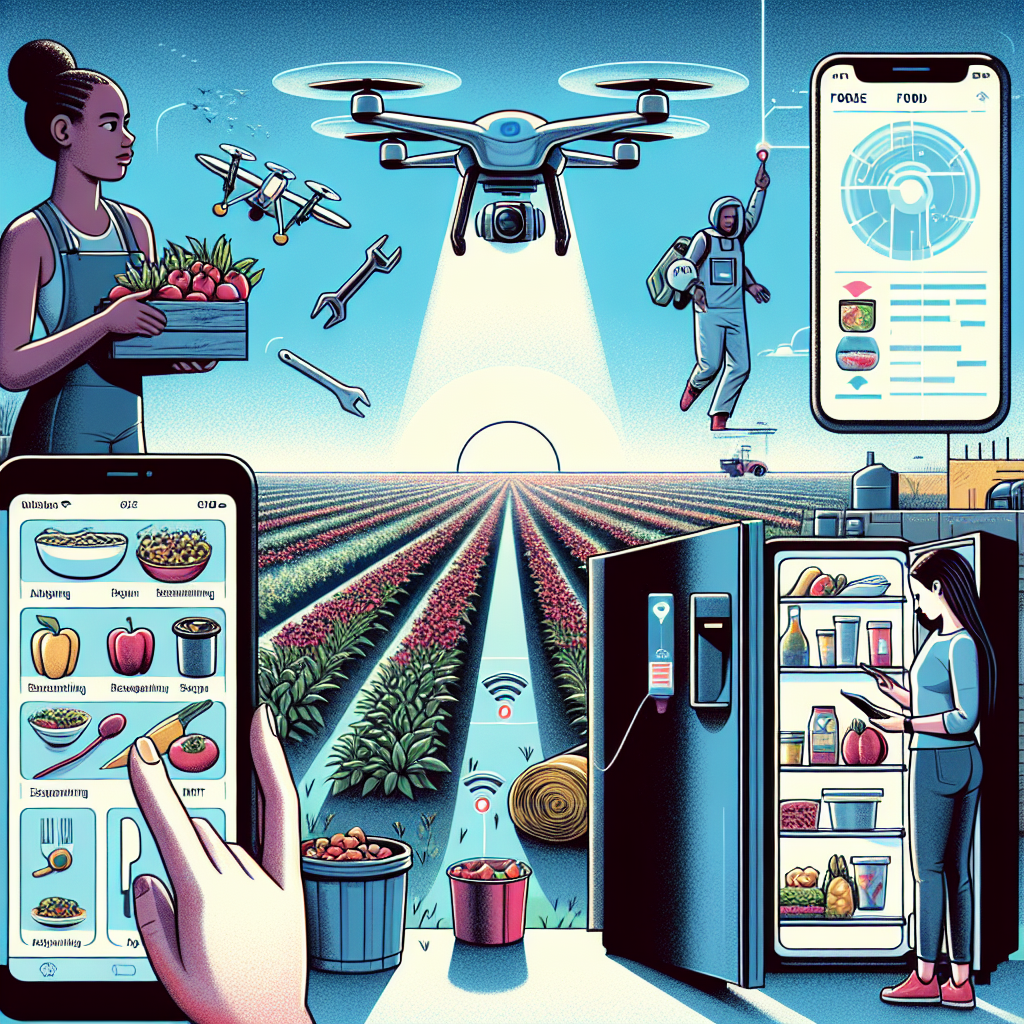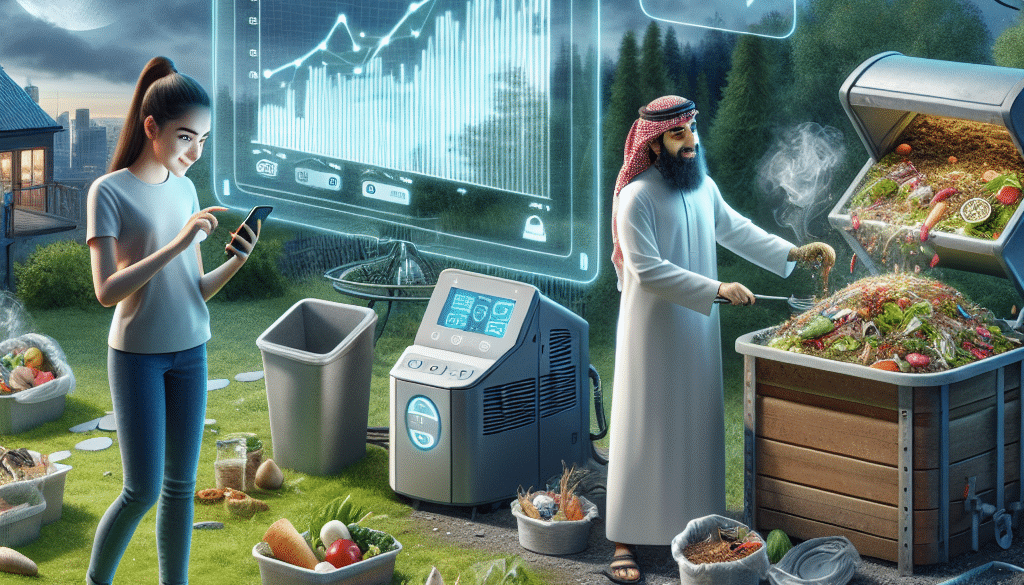Technology Encourages Combat Food Waste
-
Table of Contents
- Technology’s Role in Reducing Food Waste: Innovative Solutions
- The Impact of Food Waste
- Technological Innovations in Reducing Food Waste
- Smart Agriculture
- Supply Chain Optimization
- Food Recovery and Redistribution
- Consumer-Level Solutions
- Case Studies and Statistics
- Challenges and Considerations
- Conclusion: Embracing Technology to Fight Food Waste
- ETprotein: Sustainable Protein Solutions
Technology’s Role in Reducing Food Waste: Innovative Solutions

Food waste is a global issue with significant environmental, economic, and social implications. According to the United Nations Food and Agriculture Organization (FAO), approximately one-third of all food produced for human consumption is lost or wasted. This equates to about 1.3 billion tons per year. Not only does this represent a colossal waste of resources, but it also contributes to greenhouse gas emissions and the unnecessary use of land and water. However, technology is stepping up as a formidable ally in the fight against food waste, offering innovative solutions that encourage more sustainable consumption and production patterns.
The Impact of Food Waste
Before delving into the technological solutions, it’s crucial to understand the impact of food waste. When food is discarded, it’s not just the product that is wasted; it’s also the resources that went into producing it, such as water, land, energy, labor, and capital. Moreover, when food waste ends up in landfills, it decomposes anaerobically, releasing methane, a potent greenhouse gas. The FAO estimates that food waste is responsible for about 8% of global greenhouse gas emissions.
Technological Innovations in Reducing Food Waste
Thankfully, technology offers a myriad of ways to tackle food waste at various stages of the food supply chain. From production to consumption, innovative solutions are being implemented to ensure food is used efficiently and sustainably.
Smart Agriculture
- Precision Farming: GPS and IoT-enabled devices allow farmers to monitor crop health, soil conditions, and weather patterns to optimize planting, watering, and harvesting, reducing the amount of produce that never leaves the farm.
- Robotics: Automated harvesters and drones can reduce the time it takes to pick crops, minimizing spoilage in the field.
Supply Chain Optimization
- Cold Chain Technologies: Advanced refrigeration and transportation methods ensure that perishable goods are kept at optimal temperatures, extending their shelf life and reducing spoilage during transit.
- Blockchain: This technology enhances traceability throughout the supply chain, allowing for more efficient recalls and better management of expiry dates.
Food Recovery and Redistribution
- Mobile Apps: Platforms like Too Good To Go and Olio connect consumers with restaurants and retailers to sell or give away surplus food that would otherwise be wasted.
- Inventory Management Software: AI-driven systems help businesses predict demand more accurately, reducing over-ordering and excess stock.
Consumer-Level Solutions
- Smart Kitchen Appliances: Fridges with cameras and apps help consumers keep track of what they have and what needs to be used up, preventing overbuying and waste.
- Food Preservation Innovations: New packaging technologies extend the life of food products, giving consumers more time to consume them before they spoil.
Case Studies and Statistics
Several case studies highlight the effectiveness of technology in combating food waste. For instance, a study by the Waste and Resources Action Programme (WRAP) showed that implementing a food waste tracking system in commercial kitchens could lead to a 40% reduction in waste. Similarly, Project Drawdown lists reducing food waste as one of the top solutions to climate change, with the potential to reduce CO2 equivalent by 70.53 gigatons.
On the consumer side, a survey by the National Resources Defense Council (NRDC) found that 68% of Americans feel guilty about wasting food, and 42% say they would use an app to help them reduce waste. This indicates a significant market for consumer-level tech solutions.
Challenges and Considerations
While technology offers promising solutions, there are challenges to consider. Access to technology is not equal across the globe, and small-scale farmers or businesses may not have the resources to invest in high-tech solutions. Additionally, there is a need for consumer education to ensure that these technologies are used effectively.
Conclusion: Embracing Technology to Fight Food Waste
Technology has the potential to make a significant impact on reducing food waste. By embracing innovations in agriculture, supply chain management, food recovery, and consumer behavior, we can work towards a more sustainable future. The key will be ensuring these technologies are accessible and that there is a concerted effort to educate all stakeholders on their benefits and use.
ETprotein: Sustainable Protein Solutions
In line with the efforts to combat food waste and promote sustainability, ETprotein offers a range of organic bulk vegan proteins that are not only environmentally friendly but also contribute to a more efficient food system. Their products, including Organic rice protein, pea protein, and various seed proteins, are characterized by a neutral taste, non-GMO, and allergen-free attributes. By choosing ETprotein’s sustainable protein options, consumers and businesses can support the fight against food waste while enjoying high-quality nutrition.
About ETprotein:
ETprotein, a reputable protein and L-(+)-Ergothioneine (EGT) Chinese factory manufacturer and supplier, is renowned for producing, stocking, exporting, and delivering the highest quality organic bulk vegan proteins and L-(+)-Ergothioneine. They include Organic rice protein, clear rice protein, pea protein, clear pea protein, watermelon seed protein, pumpkin seed protein, sunflower seed protein, mung bean protein, peanut protein, and L-(+)-Ergothioneine EGT Pharmaceutical grade, L-(+)-Ergothioneine EGT food grade, L-(+)-Ergothioneine EGT cosmetic grade, L-(+)-Ergothioneine EGT reference grade and L-(+)-Ergothioneine EGT standard. Their offerings, characterized by a neutral taste, non-GMO, allergen-free attributes, with L-(+)-Ergothioneine purity over 98%, 99%, cater to a diverse range of industries. They serve nutraceutical, pharmaceutical, cosmeceutical, veterinary, as well as food and beverage finished product distributors, traders, and manufacturers across Europe, USA, Canada, Australia, Thailand, Japan, Korea, Brazil, and Chile, among others.
ETprotein specialization includes exporting and delivering tailor-made protein powder and finished nutritional supplements. Their extensive product range covers sectors like Food and Beverage, Sports Nutrition, Weight Management, Dietary Supplements, Health and Wellness Products, and Infant Formula, ensuring comprehensive solutions to meet all your protein needs.
As a trusted company by leading global food and beverage brands and Fortune 500 companies, ETprotein reinforces China’s reputation in the global arena. For more information or to sample their products, please contact them and email sales(at)ETprotein.com today.












